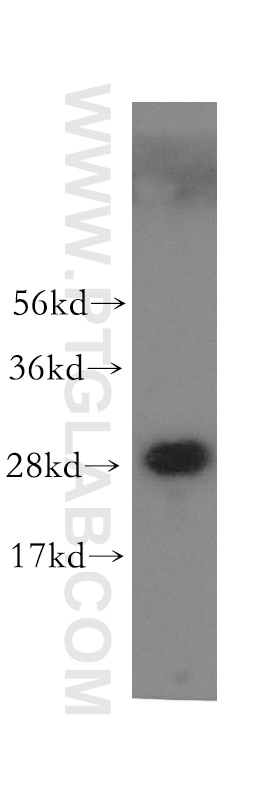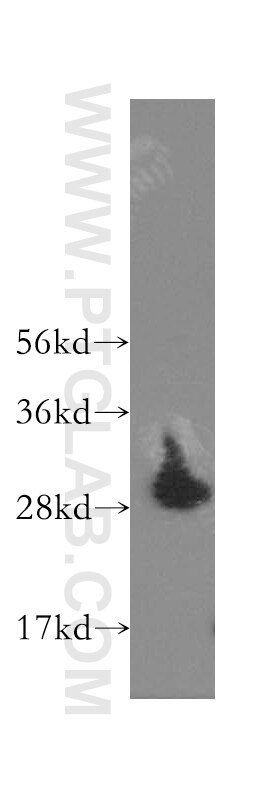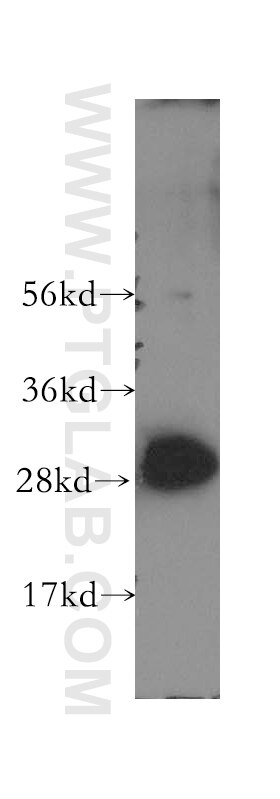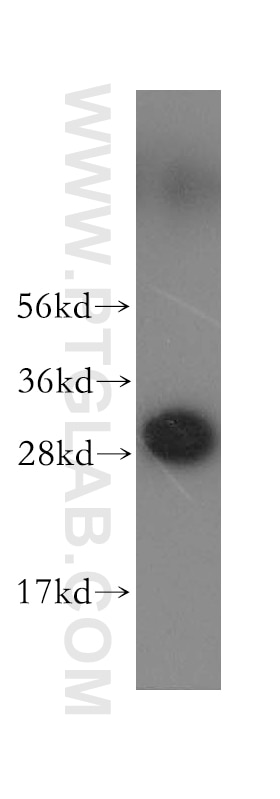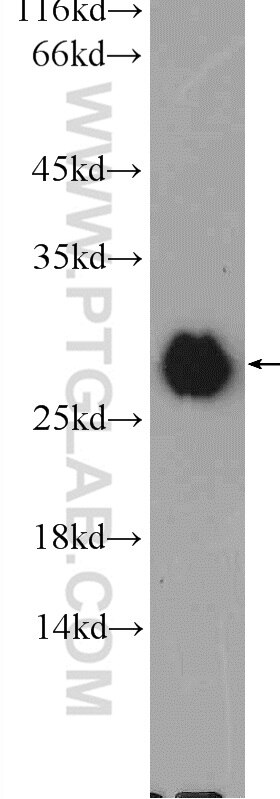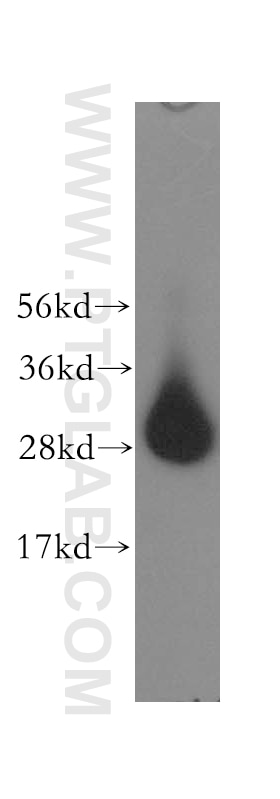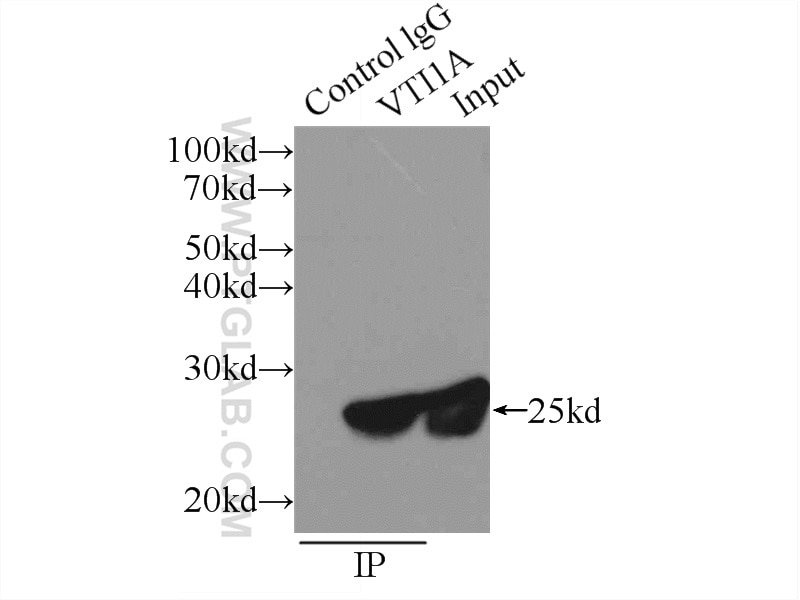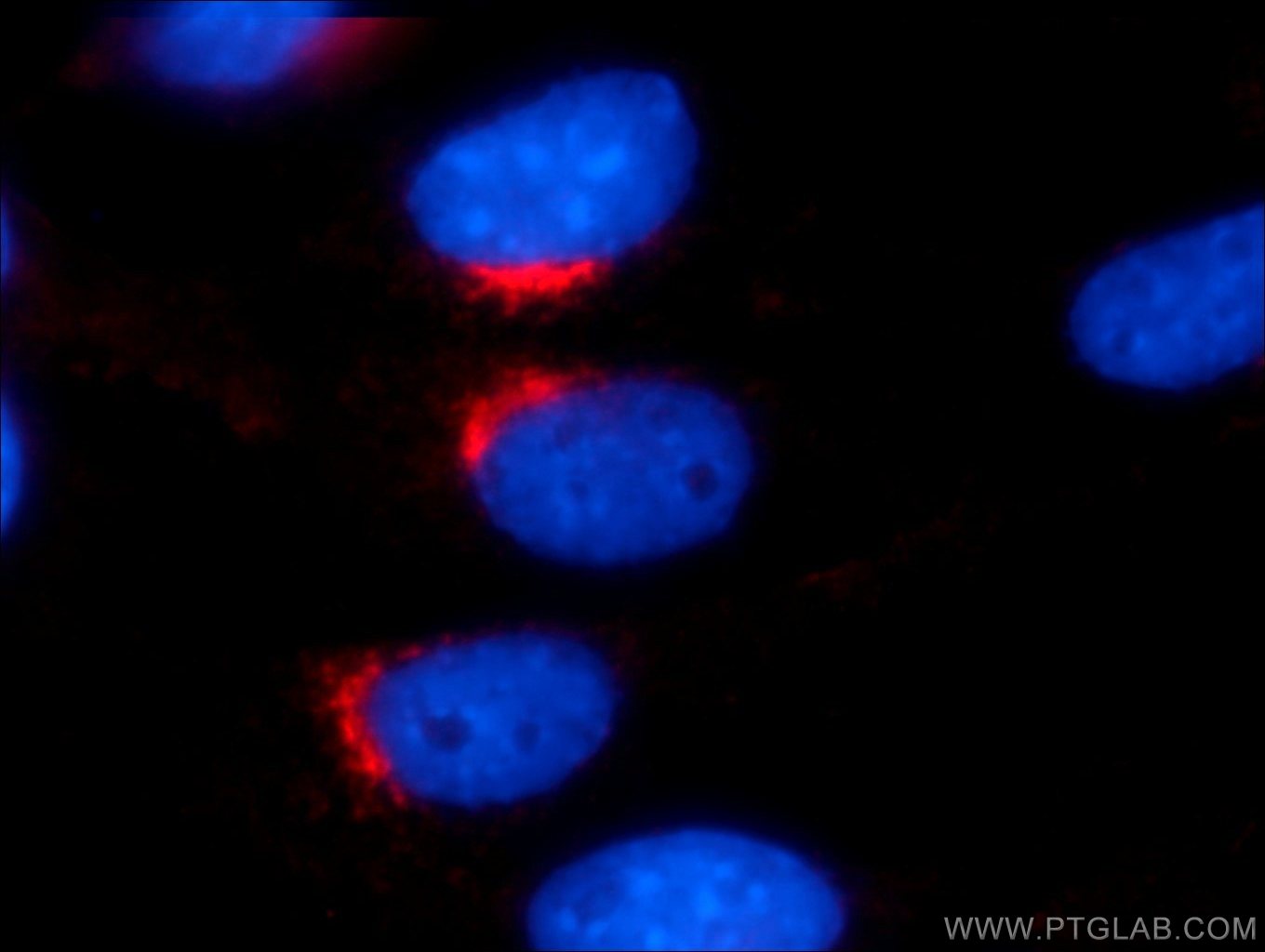VTI1A Polyklonaler Antikörper
VTI1A Polyklonal Antikörper für WB, IF/ICC, IP, ELISA
Wirt / Isotyp
Kaninchen / IgG
Getestete Reaktivität
human, Maus, Ratte
Anwendung
WB, IF/ICC, IP, ELISA
Konjugation
Unkonjugiert
Kat-Nr. : 12354-1-AP
Synonyme
Geprüfte Anwendungen
| Erfolgreiche Detektion in WB | humanes Hirngewebe, humanes Herzgewebe, humanes Nierengewebe, humanes Lungengewebe, MCF-7-Zellen, Maushirngewebe |
| Erfolgreiche IP | MCF-7-Zellen |
| Erfolgreiche Detektion in IF/ICC | NIH/3T3-Zellen |
Empfohlene Verdünnung
| Anwendung | Verdünnung |
|---|---|
| Western Blot (WB) | WB : 1:1000-1:4000 |
| Immunpräzipitation (IP) | IP : 0.5-4.0 ug for 1.0-3.0 mg of total protein lysate |
| Immunfluoreszenz (IF)/ICC | IF/ICC : 1:10-1:100 |
| It is recommended that this reagent should be titrated in each testing system to obtain optimal results. | |
| Sample-dependent, check data in validation data gallery | |
Veröffentlichte Anwendungen
| WB | See 9 publications below |
| IF | See 4 publications below |
Produktinformation
12354-1-AP bindet in WB, IF/ICC, IP, ELISA VTI1A und zeigt Reaktivität mit human, Maus, Ratten
| Getestete Reaktivität | human, Maus, Ratte |
| In Publikationen genannte Reaktivität | human, Maus |
| Wirt / Isotyp | Kaninchen / IgG |
| Klonalität | Polyklonal |
| Typ | Antikörper |
| Immunogen | VTI1A fusion protein Ag3018 |
| Vollständiger Name | vesicle transport through interaction with t-SNAREs homolog 1A (yeast) |
| Berechnetes Molekulargewicht | 217 aa, 25 kDa |
| Beobachtetes Molekulargewicht | 25-29 kDa |
| GenBank-Zugangsnummer | BC017052 |
| Gene symbol | VTI1A |
| Gene ID (NCBI) | 143187 |
| Konjugation | Unkonjugiert |
| Form | Liquid |
| Reinigungsmethode | Antigen-Affinitätsreinigung |
| Lagerungspuffer | PBS with 0.02% sodium azide and 50% glycerol |
| Lagerungsbedingungen | Bei -20°C lagern. Nach dem Versand ein Jahr lang stabil Aliquotieren ist bei -20oC Lagerung nicht notwendig. 20ul Größen enthalten 0,1% BSA. |
Hintergrundinformationen
Fusion between membranes is mediated by specific SNARE (soluble N-ethylmeleimide-sensitive factor attachment protein receptor) complexes. Two human SNARE proteins, VTI1A and VTI1B, are homologous to the yeast Q-SNARE Vtilp which is part of several SNARE complexes in different transport steps (PMID: 12067063). VTI1A is involved in transport between the endosome and the trans-Golgi network. The SNARE complex of STX10, STX16, VTI1A, and VAMP3 is required for MPR (mannose 6-phosphate receptors) transport from endosomes to the Golgi after delivering lysosomal enzymes to the endocytic pathway (PMID: 18195106). Transport from early/recycling endosomes to the TGN is mediated by the SNARE complex of STX6, STX16, VTI1A and VAMP4 (PMID: 11839770; 21807881).
Protokolle
| PRODUKTSPEZIFISCHE PROTOKOLLE | |
|---|---|
| WB protocol for VTI1A antibody 12354-1-AP | Protokoll herunterladen |
| IF protocol for VTI1A antibody 12354-1-AP | Protokoll herunterladen |
| IP protocol for VTI1A antibody 12354-1-AP | Protokoll herunterladen |
| STANDARD-PROTOKOLLE | |
|---|---|
| Klicken Sie hier, um unsere Standardprotokolle anzuzeigen |
Publikationen
| Species | Application | Title |
|---|---|---|
J Cell Biol The COG complex interacts directly with Syntaxin 6 and positively regulates endosome-to-TGN retrograde transport. | ||
Oncogene Syntaxin-6 mediated autophagy confers lenvatinib resistance in hepatocellular carcinoma | ||
J Cell Sci The COG complex interacts with multiple Golgi SNAREs and enhances fusogenic assembly of SNARE complexes. | ||
Oncotarget Downregulation of vimentin expression increased drug resistance in ovarian cancer cells. | ||
Traffic Deficiency of the Cog8 subunit in normal and CDG-derived cells impairs the assembly of the COG and Golgi SNARE complexes. |
